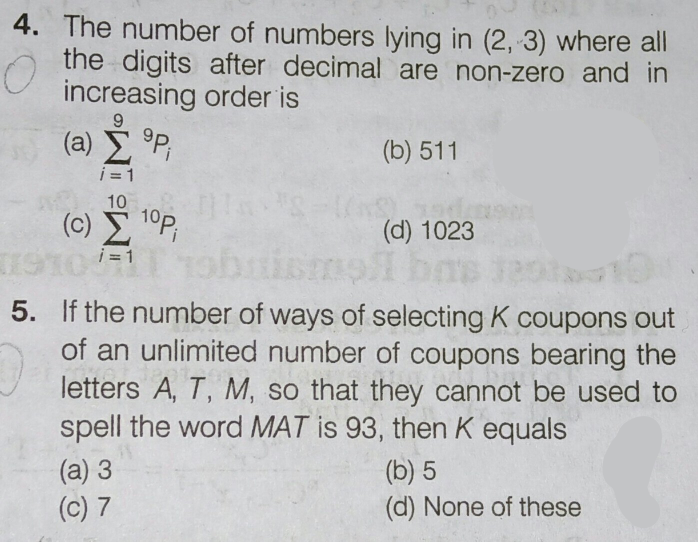
Permutation and CombinationQuestion and Answers: Page 20
Question Number 55502 Answers: 2 Comments: 1

Question Number 55468 Answers: 1 Comments: 0

Question Number 55192 Answers: 1 Comments: 1
Question Number 55119 Answers: 1 Comments: 1
Question Number 55115 Answers: 0 Comments: 4

Question Number 55100 Answers: 1 Comments: 5

Question Number 55099 Answers: 1 Comments: 0
Question Number 54860 Answers: 1 Comments: 1

Question Number 54740 Answers: 3 Comments: 0
Question Number 54698 Answers: 2 Comments: 0
Question Number 54646 Answers: 2 Comments: 0
Question Number 54286 Answers: 2 Comments: 2

Question Number 53043 Answers: 2 Comments: 1

Question Number 52381 Answers: 2 Comments: 0
Question Number 52379 Answers: 1 Comments: 0
Question Number 52278 Answers: 2 Comments: 0
Question Number 52276 Answers: 1 Comments: 0
Question Number 51779 Answers: 0 Comments: 3
Question Number 51465 Answers: 2 Comments: 4

Question Number 51287 Answers: 1 Comments: 0

Question Number 51286 Answers: 1 Comments: 0

Question Number 50724 Answers: 1 Comments: 0
Question Number 50258 Answers: 1 Comments: 0
Question Number 50008 Answers: 1 Comments: 4
Question Number 49982 Answers: 1 Comments: 0
Question Number 49482 Answers: 1 Comments: 14
